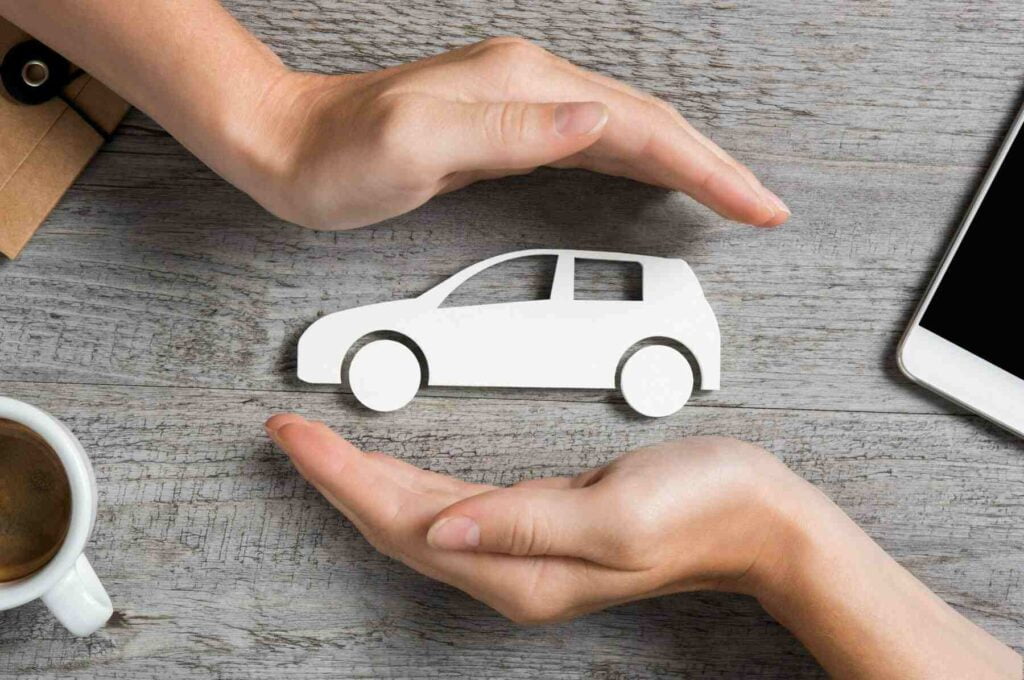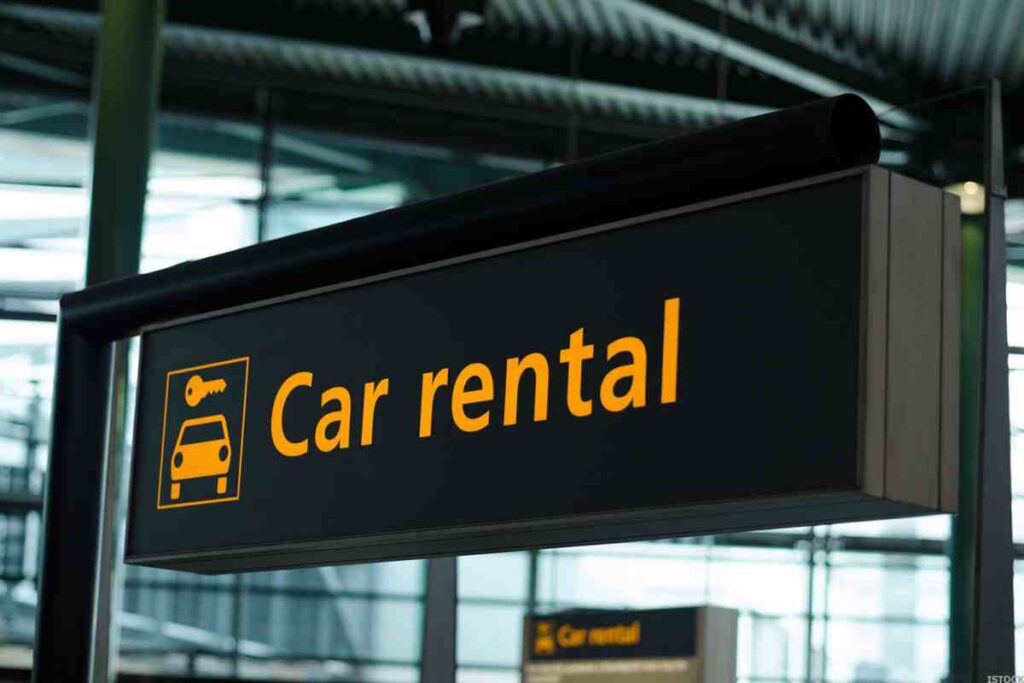When it comes to car insurance, many factors determine your premium, from your driving record to the type of car you drive. But did you know that your marital status could also impact your rates? It’s true—being married might actually lower your car insurance. But why is that the case? Are married drivers really safer on the roads, or is it just another industry myth? In this article, we’ll delve into the intriguing relationship between marriage and car insurance rates, unraveling the reasons behind this trend and exploring whether tying the knot can indeed save you money on your premiums. Whether you’re single, engaged, or married, this guide will provide you with the insights you need to understand how your marital status could affect your car insurance costs.
Does Being Married Lower Your Car Insurance Cost?

When it comes to car insurance, many factors can influence the premium you pay. One of the more surprising elements is your marital status. Insurers often consider married drivers to be lower risk compared to their single counterparts. But why does being married impact car insurance rates, and what is the basis for this assumption?
Insurance companies view married individuals as more stable and responsible, which extends to their driving habits, leading to fewer accidents and claims. This perception of stability translates to lower risk, and statistics show that married drivers are less likely to engage in risky behaviors such as speeding or driving under the influence. Consequently, insurers consider married drivers to be lower risk, resulting in lower premiums.
Additionally, married couples are often seen as more financially responsible, which can include maintaining good credit scores. Better credit scores can lead to lower premiums, as insurance companies use credit scores as a factor in determining rates.
Moreover, married couples are more likely to own multiple vehicles, qualifying them for multi-car discounts when insuring multiple cars with the same provider. Bundling car insurance with other policies, such as home or renters insurance, can also lead to significant discounts, further reducing insurance costs.
Shared driving responsibilities among married couples can result in lower mileage on each vehicle, and lower mileage can lead to lower premiums since vehicles with less usage are less likely to be involved in accidents. Lastly, if both spouses have clean driving records, they may qualify for safe driver discounts, as insurance companies reward drivers with good records by offering lower rates.
However, it’s important to note that marital status is just one of many factors that affect car insurance rates. While being married can contribute to lower premiums, other aspects such as driving history, age, location, and the type of car you drive play significant roles as well.
Statistical Data on Married vs. Single Drivers

Here are some key findings from various studies and data sources that highlight the differences in accident rates and claims between married and single drivers:
- According to The Zebra, married drivers pay an average of $149 less per year for car insurance compared to single drivers. The average annual premium for a single driver is $1,760, while for married drivers, it’s $1,611. This difference is attributed to the lower claim frequency among married individuals.
- MoneyGeek’s research shows that married drivers pay an average annual premium of $758, whereas single drivers pay $1,185. This means married drivers pay $427 less per year. The study highlights that married drivers are viewed as less likely to have accidents or file claims, leading to lower insurance rates.
- According to Policygenius, married drivers pay an average of $1,591 per year for car insurance, while single drivers pay around $1,721 per year. This means married drivers save approximately $130 annually.
- Historical data from Compare.com indicates that married couples tend to file fewer claims than single individuals. This lower overall risk is reflected in reduced car insurance premiums for married people.
- The IRC report supports the notion that married drivers are involved in fewer accidents and file fewer claims compared to single drivers. This trend is consistent across various states and insurance providers.
- Telematics data, which tracks real-time driving behavior, shows that married drivers exhibit safer driving patterns. Married individuals are less likely to engage in risky driving behaviors such as speeding or harsh braking.
These studies and data points consistently show that married drivers are generally considered lower risk by insurance companies, leading to lower premiums. This is due to their lower accident rates and fewer claims filed compared to single drivers.
Other Discounts for Married Couples
Married couples can benefit from a variety of discounts on their car insurance. Here are some of the most common ones:
- Bundling Discounts: If you and your spouse both have car insurance policies with the same provider, you may be eligible for a bundling discount. This can also apply if you bundle your car insurance with other types of insurance, such as home or renters insurance.
- Multi-Car Discounts: Married couples often own more than one vehicle. Insuring multiple cars with the same provider can qualify you for a multi-car discount, which can significantly reduce your overall premium.
- Safe Driver Discounts: Many insurance companies offer discounts for maintaining a clean driving record. If both you and your spouse have good driving records, you may be eligible for a safe driver discount.
- Loyalty Discounts: Staying with the same insurance provider for an extended period can earn you a loyalty discount. This can be especially beneficial for married couples who have been with the same insurer for several years.
- Good Credit Discounts: Insurance companies often consider credit scores when determining premiums. Married couples with good credit scores can benefit from lower rates.
- Newlywed Discounts: Some insurance providers offer special discounts for newlyweds. This can be a great way to save money on car insurance right after getting married.
- Usage-Based Discounts: Programs that track your driving habits, such as mileage and driving behavior, can offer discounts based on your actual usage. Married couples who drive less or exhibit safe driving behaviors can benefit from these programs.
By taking advantage of these discounts, married couples can significantly reduce their car insurance premiums. It’s always a good idea to shop around and compare quotes from different providers to find the best rates and discounts available.
How to Add a Spouse to Your Auto Insurance Policy

Adding your spouse to your auto insurance policy is a straightforward process that can help you both save money and ensure comprehensive coverage. Here are the steps to follow:
- Contact Your Insurance Provider: Reach out to your current insurance provider or your spouse’s provider. You can do this via phone, online, or by visiting a local office.
- Provide Necessary Information: Be prepared to provide details about your spouse, including their full name, date of birth, driver’s license number, and driving history. Your insurer may also ask for information about any vehicles your spouse drives.
- Update Policy Details: Decide whether to add your spouse as a policy co-owner or as a listed driver. Adding them as a co-owner means they share equal responsibility for the policy, while listing them as a driver simply includes them under your coverage.
- Review and Adjust Coverage: Discuss with your insurer any changes in coverage that might be necessary. For example, you might want to increase liability limits or add comprehensive and collision coverage if your spouse drives your car regularly.
- Check for Discounts: Inquire about any discounts you might be eligible for, such as multi-car discounts if you’re insuring more than one vehicle, or bundling discounts if you combine auto insurance with other policies like home insurance.
- Confirm and Finalize: Once all details are updated, review the new policy terms and premiums. Make sure everything is accurate and confirm the changes with your insurer.
- Receive Updated Policy Documents: Your insurer will provide updated policy documents reflecting the addition of your spouse. Keep these documents in a safe place and ensure both you and your spouse are familiar with the coverage details.
Adding your spouse to your auto insurance policy can lead to savings and provide peace of mind knowing that both of you are adequately covered.
Tips for Getting the Best Rates
Getting the best car insurance rates requires a bit of research and strategic planning. Here are some practical tips to help you and your spouse secure the most affordable premiums:
- Shop Around: Compare quotes from multiple insurance providers. Rates can vary significantly between companies, so it’s worth taking the time to find the best deal.
- Bundle Policies: Consider bundling your car insurance with other policies, such as home or renters insurance. Many providers offer discounts for bundling multiple policies.
- Maintain a Good Driving Record: Avoid accidents and traffic violations to keep your driving record clean. A good driving history can lead to lower premiums.
- Take Advantage of Discounts: Ask your insurance provider about available discounts. Common discounts include multi-car, safe driver, good student, and loyalty discounts.
- Improve Your Credit Score: Insurance companies often consider credit scores when determining premiums. Improving your credit score can help you qualify for lower rates.
- Choose a Higher Deductible: Opting for a higher deductible can lower your premium. Just make sure you can afford the deductible in case of an accident.
- Drive Less: Some insurance companies offer discounts for low-mileage drivers. If you and your spouse drive less than the average, you may qualify for a lower rate.
- Consider Usage-Based Insurance: Programs that track your driving habits can offer discounts based on your actual usage. If you drive safely and infrequently, you could save money.
- Review Your Coverage Annually: Regularly review your insurance policy to ensure you have the right coverage. Adjust your policy as needed to reflect changes in your driving habits or vehicle.
- Ask About Newlywed Discounts: Some insurance providers offer special discounts for newlyweds. Be sure to inquire about any discounts you may be eligible for after getting married.
By following these tips, you and your spouse can find the best car insurance rates and potentially save a significant amount of money.
Other Factors That Influence Car Insurance Rates
Car insurance rates are influenced by a variety of factors beyond marital status. Here are some key elements that insurers consider when determining your premiums:
- Driving Record: Your driving history is one of the most significant factors. A clean record with no accidents or traffic violations can lead to lower rates, while a history of accidents or tickets can increase your premiums.
- Credit History: Many insurers use credit-based insurance scores to assess risk. A higher credit score can result in lower premiums, as it suggests financial responsibility.
- Age and Gender: Younger drivers, especially teenagers, typically pay higher rates due to their lack of experience. Gender can also play a role, with young male drivers often facing higher premiums than their female counterparts.
- Location: Where you live affects your insurance rates. Urban areas with higher traffic density and crime rates generally have higher premiums compared to rural areas.
- Vehicle Type: The make, model, and year of your vehicle impact your insurance costs. High-performance cars or luxury vehicles usually cost more to insure due to their higher repair costs and increased risk of theft.
- Annual Mileage: The more you drive, the higher your risk of being involved in an accident. Insurers often offer lower rates to drivers with lower annual mileage.
- Coverage Selections: The types and amounts of coverage you choose directly affect your premiums. Comprehensive and collision coverage, higher liability limits, and lower deductibles all increase your insurance costs.
- Claims History: A history of filing claims can lead to higher premiums. Insurers view frequent claims as an indicator of higher risk.
- Occupation: Some occupations are considered lower risk than others. For example, jobs that require less driving or involve safer driving conditions can result in lower premiums.
- Vehicle Safety Features: Cars equipped with advanced safety features such as anti-lock brakes, airbags, and anti-theft devices can qualify for discounts, as they reduce the risk of injury and theft.
Understanding these factors can help you make informed decisions when shopping for car insurance and potentially find ways to lower your premiums.
Potential Drawbacks and Considerations
While being married can often lead to lower car insurance rates, there are several potential downsides and limitations to relying solely on marital status for these savings:
- High-Risk Spouse: If your spouse has a poor driving record, adding them to your policy could actually increase your premiums. Insurance companies consider the driving history of all listed drivers, so a high-risk spouse can negate the benefits of lower rates for married couples.
- State Regulations: Not all states allow insurance companies to use marital status as a factor in determining rates. In such states, being married may not provide any advantage in terms of lower premiums.
- Divorce or Separation: If you get divorced or separated, you may lose the discounts associated with being married. This can lead to higher premiums, especially if you have to switch from a joint policy to an individual policy.
- Inconsistent Savings: The amount of savings from being married can vary significantly between insurance providers and states. Some companies may offer substantial discounts, while others may provide minimal or no savings based on marital status.
- Bundling Risks: While bundling policies can lead to discounts, it also means that any claims or issues with one policy can affect the others. For example, if your spouse files a claim on the home insurance policy, it could impact your auto insurance rates.
- Misconceptions: Relying on marital status alone for lower rates can lead to misconceptions about other important factors that influence premiums. Driving history, credit score, vehicle type, and coverage levels are all critical components that should not be overlooked.
Can Undocumented Immigrants Get Car Insurance?
Understanding these potential downsides can help you make more informed decisions about your car insurance.
Advice for Single Drivers

Here are some practical tips for single drivers to help them save on car insurance and ensure they get the best coverage:
- Compare quotes from multiple insurers to find the best rates.
- Avoid accidents and traffic violations to keep premiums low.
- Programs like Allstate’s Drivewise or Progressive’s Snapshot can offer discounts based on your driving habits.
- Look for discounts such as good student, defensive driving course, and safety features.
- Opting for a higher deductible can lower your premium.
- Combine auto insurance with other policies like renters or home insurance for additional savings.
- Cars with high safety ratings and lower repair costs are cheaper to insure.
By following these tips, single drivers can find affordable car insurance and ensure they have the coverage they need.
FAQs
Q 1. Does getting married automatically lower my car insurance rates?
Ans. No, getting married doesn’t automatically lower your car insurance rates. However, it can make you eligible for discounts and lower premiums based on the insurer’s risk assessment.
Q 2. Do all insurance companies offer lower rates for married couples?
Ans. Not all insurance companies offer lower rates for married couples. It’s important to compare quotes from different insurers to find the best rates.
Q 3. Can my spouse and I combine our car insurance policies?
Ans. Yes, many insurance companies allow married couples to combine their car insurance policies, which can lead to additional discounts and savings.
Q 4. What if my spouse has a poor driving record?
Ans. If your spouse has a poor driving record, it could impact your combined insurance rates. In some cases, it might be more cost-effective to maintain separate policies.
Q 5. Are there any other life events that can affect car insurance rates?
Ans. Yes, other life events such as moving to a new location, buying a new car, or having a child can also impact your car insurance rates.
Q 6. Does being married affect other types of insurance?
Ans. Yes, being married can also affect other types of insurance, such as home insurance and health insurance. Married couples may be eligible for discounts and benefits in these areas as well.
Q 7. Can I still get discounts if I’m in a domestic partnership or civil union?
Ans. Some insurance companies offer similar discounts to individuals in domestic partnerships or civil unions. It’s best to check with your insurer to see what discounts are available.
Conclusion
In conclusion, being married can indeed have a positive impact on your car insurance rates. Insurers often view married individuals as more responsible and financially stable, leading to lower premiums. The statistical data supports this trend, showing that married drivers are less likely to be involved in accidents and file claims compared to their single counterparts.
However, it’s important to remember that while marital status can influence your insurance rates, it’s just one of many factors that insurers consider. Other elements such as your driving history, vehicle type, and location also play significant roles in determining your premiums.
Whether you’re married or single, there are always ways to lower your car insurance rates. By maintaining a clean driving record, taking advantage of discounts, and shopping around for the best deals, you can ensure that you’re getting the most value for your money.

Shubham is a passionate insurance expert with years of experience in the industry. I write about home, auto, travel, life, and health insurance to help readers make informed decisions. My goal is to break down the details of coverage, costs, and claims in a straightforward, easy-to-understand way, so you can protect what matters most without the confusion.


